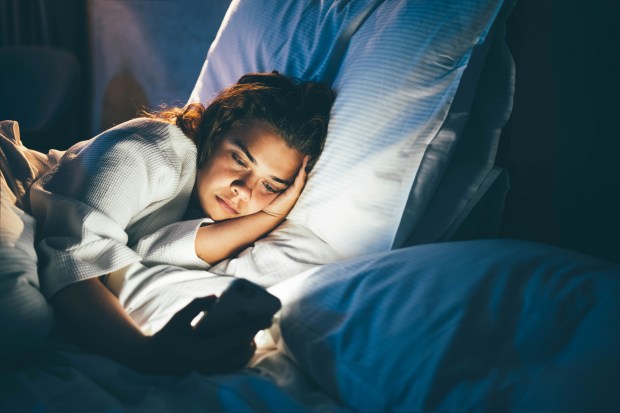Health
Social Media Posting at Night Linked to Poor Mental Health

Research from Bristol University indicates that posting on social media late at night may have a detrimental impact on mental health, comparable to the effects of alcohol and cannabis use. The study highlights that individuals who engage with platforms such as X, formerly known as Twitter, after 11 PM exhibit significantly poorer mental health outcomes.
The findings suggest that late-night social media activity can disrupt sleep patterns, leading to reduced sleep quality and quantity, which in turn affects overall mental well-being. The researchers estimated that nighttime posting contributed to approximately 2 percent of the variations in mental health among the participants. This effect mirrors the consequences previously associated with binge drinking and cannabis use.
Polling data from YouGov reveals that around 90 percent of individuals in the UK check their phones within an hour of bedtime. This prevalent behavior underscores the urgency of addressing the mental health implications of social media use at night.
Research Insights and Recommendations
The study analyzed data from 310 adults across the UK, comparing mental health scores between those who posted late at night (between 11 PM and 5 AM) and those who engaged during daytime hours. Individuals who participated in nighttime posting scored an average of four to eight points lower on a scale of 70 when evaluated for mental health.
According to Daniel Joinson, the lead author of the study, the results highlight the potential harms of posting content during the night. He expressed hope that this research could inform future interventions or policies aimed at reducing harmful social media usage. The findings support the implementation of curfews or “wind-down” features within social media applications, encouraging users to limit late-night activity.
Access to Mental Health Support
The growing awareness of the mental health risks associated with nighttime social media use emphasizes the need for accessible support services. If you or someone you know is experiencing mental health challenges, several organizations offer confidential assistance.
– Samaritans: www.samaritans.org, 116 123
– CALM (Campaign Against Living Miserably): www.thecalmzone.net, 0800 585 858
– Papyrus (prevention of young suicide): www.papyrus-uk.org, 0800 068 41 41
– Shout: www.giveusashout.org/get-help/, text 85258
– Mind: www.mind.org, 0300 123 3393
Additionally, YoungMinds provides a free, confidential helpline for parents concerned about children’s mental wellbeing at 0808 802 5544. Rethink Mental Illness also offers advice and information services on various mental health topics through their website or by calling 0300 5000 927.
The implications of this research call for a collective effort to promote healthier social media habits, particularly at night, to safeguard mental health.
-

 Health3 months ago
Health3 months agoNeurologist Warns Excessive Use of Supplements Can Harm Brain
-

 Health3 months ago
Health3 months agoFiona Phillips’ Husband Shares Heartfelt Update on Her Alzheimer’s Journey
-

 Science1 month ago
Science1 month agoBrian Cox Addresses Claims of Alien Probe in 3I/ATLAS Discovery
-

 Science1 month ago
Science1 month agoNASA Investigates Unusual Comet 3I/ATLAS; New Findings Emerge
-

 Science4 weeks ago
Science4 weeks agoScientists Examine 3I/ATLAS: Alien Artifact or Cosmic Oddity?
-

 Entertainment4 months ago
Entertainment4 months agoKerry Katona Discusses Future Baby Plans and Brian McFadden’s Wedding
-

 Science4 weeks ago
Science4 weeks agoNASA Investigates Speedy Object 3I/ATLAS, Sparking Speculation
-

 Entertainment4 months ago
Entertainment4 months agoEmmerdale Faces Tension as Dylan and April’s Lives Hang in the Balance
-

 World3 months ago
World3 months agoCole Palmer’s Cryptic Message to Kobbie Mainoo Following Loan Talks
-

 Science4 weeks ago
Science4 weeks agoNASA Scientists Explore Origins of 3I/ATLAS, a Fast-Moving Visitor
-

 Entertainment4 months ago
Entertainment4 months agoLove Island Star Toni Laite’s Mother Expresses Disappointment Over Coupling Decision
-

 Entertainment3 months ago
Entertainment3 months agoMajor Cast Changes at Coronation Street: Exits and Returns in 2025









